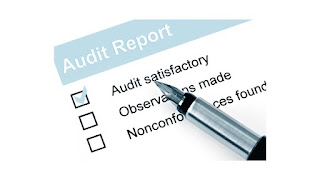Writing Effective Audit Observations

OVERVIEW The key to writing an effective audit observation is having a comprehensive structured process. The Institute of Internal Auditors recommends a process known as the 5Cs: Criteria Condition Cause Consequences (Effect) Corrective Action (Recommendation) As you develop conclusions, findings, and recommendations, you must present them to your client in a logical, complete, and objective way. This process provides an easy way to consistently develop and present your observations. The components in this process include all the information you will need to inform and persuade. Developing this process can be an important tool for completing and reporting observations in a timely and comprehensive way. It allows you to present those findings to your reader in a logical, complete, and objective manner and, thus, enhances the chances of the client’s buy-in and their agreement to your recommendations. This process can also serve as a basis ...



